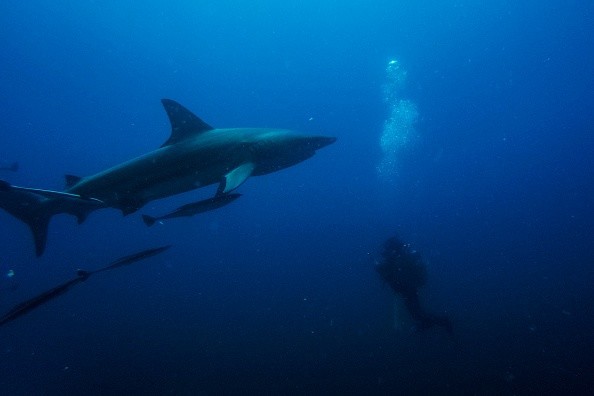Noise pollution is an invisible threat to ocean wildlife, but it is a major - and often fatal - threat. There's almost no place in the world's oceans where human sounds aren't detectable, just as there's hardly a mountaintop free of the roar of airplanes overhead. Military sonar, oil exploration, and industrial shipping are the loudest and most disruptive artificial ocean noises.

Ocean Noise
The term "ocean noise" refers to noises produced by humans that can interfere with or confuse marine creatures' ability to perceive natural sounds in the ocean. Commercial ships, seismic surveys, oil exploitation, and military sonar contribute to ocean noise pollution. All of these sounds are extremely dangerous to marine life. Noise pollution influences a variety of marine creatures.
Importance of Hearing
The capacity to hear is critical for the survival of many aquatic species. Underwater, sound is a very efficient mode of communication, and many marine creatures rely on it to acquire and absorb information about their surroundings. Many aquatic species utilize sound to discover prey, find mates and offspring, avoid predators, navigate and find habitat, and listen and communicate with one another.
Most marine species, notably fish and mammals, are susceptible to sound. Underwater, noise may travel great distances, blanketing enormous regions and preventing marine creatures from hearing their prey or predators, navigating, or interacting with partners, group members, or their young. An increase in seismic noise was linked to decreased species diversity in whales and dolphins.
Human Activities

Human activities such as shipping, recreational boating, and energy exploration have grown along with our coastal, offshore, and deep-ocean ecosystems throughout the last century. Noise from these activities may travel great distances underwater, causing changes in ocean noise levels in various coastal and offshore environments.
Rising noise levels have the potential to harm ocean species and ecosystems. Animals' capacity to interact with possible mates, other group members, their young, or feeding partners might be harmed by increased noise levels. Noise can also impair an aquatic animal's ability to hear important environmental cues, such as those that help it escape predators, obtain food, and navigate to preferred areas.
The behavior of animals alters considerably when they are exposed to ocean sounds. It stresses the animal and forces it out of its natural environment. It impairs the ability of an animal to communicate, navigate, locate prey, avoid predators, and find mates. Human-made ocean noise interferes with every aspect of an animal's life. A protracted, loud hit might result in severe damage and even death in the worst-case scenario.
Naval Sonars
Individual whales and maybe genetically isolated small groups have been killed by naval sonar-noise influences invertebrates such as lobsters, crabs, and shrimp. Fish have been deafened by noise, which has resulted in drastically lower capture rates, stress reactions, and interference with fish communication, schooling, and perhaps habitat selection. Because of the noise, whales have relocated away from their feeding and breeding areas, displayed signs of stress, and foraged inefficiently.
Call for Action
Advocacy organizations seek to change the fact that there is now no worldwide legislation on ocean noise. Teams work with government authorities to put stricter regulations to reduce ocean noise pollution. They believe that imposing speed limits on ships is the most effective option since it cuts ocean noise and gas emissions, and ship collisions.
For more Environmental News, don't forget to follow Nature World News!
© 2026 NatureWorldNews.com All rights reserved. Do not reproduce without permission.





